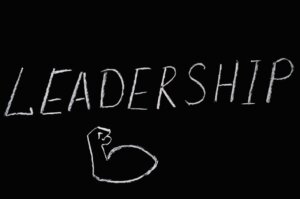My experiences has led me to conclude that “consensus” is a widely misunderstood concept. Many people believe that for them to be in consensus with a decision, they have to believe that the decision is the best decision. With this definition, therefore, they believe debate must continue until they convince the others or the others convince them. But, what does consensus really mean? How a group defines consensus is critical to being able to facilitate the group toward decisions.
The implications of this definition of consensus on organizational productivity can be staggering. Allow me to explain by way of an analogy. In America, a jury is made up of 12 people. After naming a foreperson, the jury members have only one decision to make. They have to decide whether the defendant is guilty or not guilty. Consider how long this one decision takes. Sometimes, it is a few hours. Often, it takes multiple days. And, all too often, it takes so long that they quit and declare a mistrial.
Let’s come back to the work environment and consider a sample scenario of a process improvement team. Let’s say this team’s objective is to improve an organization’s hiring process. They don’t have just one decision to make. They have a number of decisions to make about each of the steps in the hiring process and how to make the overall process better. If there were just two people on the team, and they had to debate until the two of them agreed that every aspect of the solution was the best that it could be, let’s say it would take three days. If you add a third person to the team, is it now going to take five days? Probably not. It would probably take considerably longer because the discussion couldn’t stop until all three agreed on every aspect of the solution. Some places where the first two agreed, and the third person disagreed, there would now have to be additional debate. And places where all three disagreed, the time it would take to bring all three to agreement would be considerably longer then it was with just the two. Let’s say, therefore, with three people, it would now take seven days. Then, let’s add a fourth person, and a sixth and a seventh, and so on. By the time you reach a team of 10 or 12 members who all had to talk about every aspect of the solution until each one of the 12 agreed that every part was the absolute best it could be, how long would it take? Several weeks at least, and more likely several months. And quite possibly, like the hung jury, they might not ever get there!
To avoid the major investment of time and energy that 100 percent agreement on every aspect of a solution would require, we believe a different definition of consensus is more appropriate.
| Consensus means: “I can live with it and I will support it.”
Consensus does NOT mean: “I think this is the best solution.” Consensus simply means, “I can live with it and I will support it through implementation.” |
________________________
Certified Master Facilitator Michael Wilkinson is the CEO and Managing Director of Leadership Strategies, Inc., The Facilitation Company and author of The Secrets of Facilitation 2nd Edition, The Secrets to Masterful Meetings, and The Executive Guide to Facilitating Strategy. Leadership Strategies is a global leader in facilitation services, providing companies with dynamic professional facilitators who lead executive teams and task forces in areas like strategic planning, issue resolution, process improvement and others. The company is also a leading provider of facilitation training in the United States, having trained over 18,000 individuals.
 Sections of this topic
Sections of this topic
















